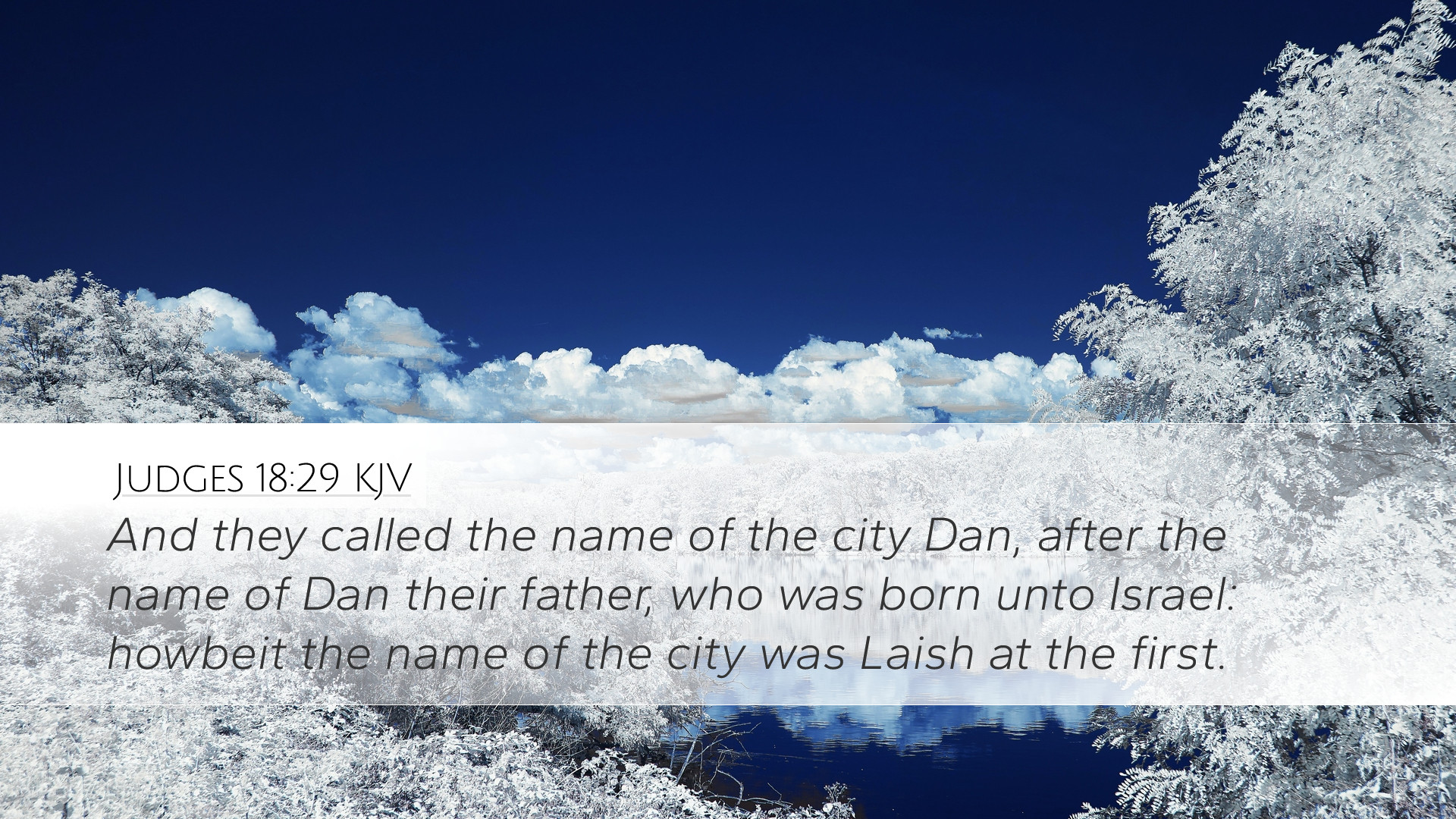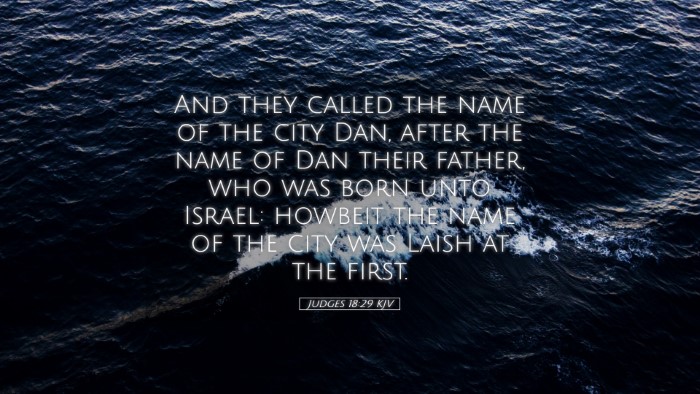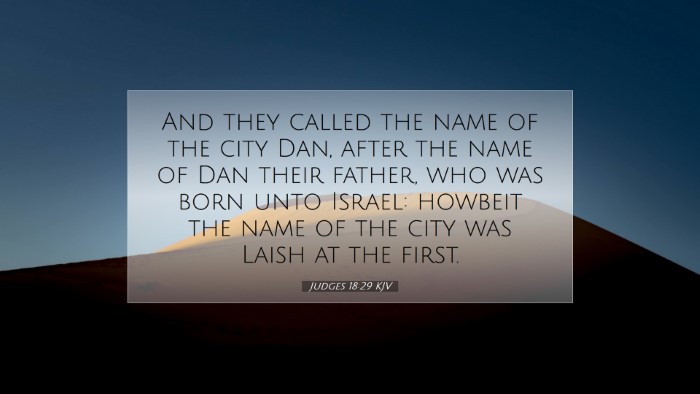Commentary on Judges 18:29
Verse Reference: Judges 18:29 - "And they called the name of the city Dan, after the name of Dan their father, who was born unto Israel: howbeit the name of the city was Laish at the first."
Introduction
This verse marks a significant portion of the narrative in the Book of Judges, encapsulating themes of identity, tribal heritage, and the establishment of worship practices. The context surrounding this verse provides valuable insights into the dynamics of Israel’s tribes during a tumultuous period of their history.
Contextual Background
The Book of Judges highlights a cycle of sin, oppression, repentance, and deliverance that characterized the Israelites after the conquest of Canaan. This particular passage appears towards the end of the account of the tribe of Dan, indicating their search for territory and identity.
Commentary Insights
Matthew Henry
Heritage and Identity: Matthew Henry emphasizes the importance of the name "Dan", which signifies judgment and reflects the familial lineage of the tribe. The decision to rename Laish to Dan highlights a reclamation of identity and divine providence in securing inheritance.
Spiritual Significance: Henry also points out that this renaming was emblematic of how the Israelites related to their God. The naming signifies not just geographical identity but also spiritual alignment—calling on God to act as their judge and protector.
Albert Barnes
Historical Context: Albert Barnes provides a detailed analysis of the historical background of the city Laish, noting that it was a Canaanite city known for its security and isolation. The Danites' conquest of Laish and their subsequent renaming of it to Dan underlines their desire for a stronghold within the lands allotted to them.
Error of the Danites: Barnes warns of the dangers presented in the actions of the Danites, including the establishment of a new cultic center and idol worship, which reflects a deepening apostasy in Israel. The act of naming signifies not just possession, but also the unfortunate adoption of practices contrary to God's commands.
Adam Clarke
Details on Laish and Dan: Adam Clarke elaborates on the transition from Laish to Dan, indicating its implications for the tribe's future. He notes that Laish was a place of refuge, and the takeover signifies upheaval and a shift from Canaanite practices to Israelite identity.
Cultural Implications: Clarke also explores the broader cultural implications of the name change, linking it to the identity crisis the tribes faced during this era. The establishment of Dan as a new center of worship reflects a blending of national identity and personal faith, raising questions about authenticity in worship.
Theological Reflections
The focus on the name change from Laish to Dan invites deeper theological reflections on identity and heritage. Names in the biblical context often carry profound meanings that resonate with the character of God’s promises and the relationship between the individual and the community of faith.
Identity in Christ
The transformation of Laish into Dan parallels the believer's transformation in Christ. Just as the Danites found a new identity and purpose, believers today are called to a new life in Christ, characterized by a fresh understanding of who they are in God’s eyes.
The Role of Worship
Furthermore, the establishment of a new worship center or idol at Dan highlights the significance of worship practices. Scripture continuously reminds followers that worship is not limited to physical locations but is centered upon the heart’s posture towards God.
Conclusion
Judges 18:29 encapsulates a pivotal moment for the tribe of Dan, offering profound insights into identity, heritage, and worship. The transition from Laish to Dan serves as a reminder of the spiritual challenges faced in claiming new identities and warns against compromising true worship for convenience. Pastors, students, and theologians alike can draw from this commentary to gain a deeper understanding of how historical narratives in Scripture resonate with contemporary faith practices.


